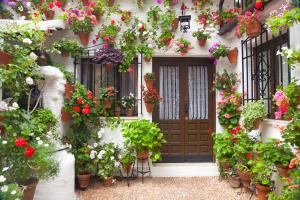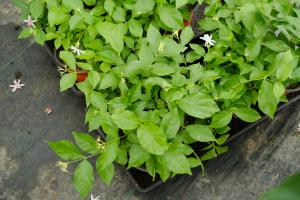Can You Use Potting Soil for In Ground Plants?
When it comes to gardening, one of the most crucial factors to consider is the type of soil you use. The soil is what provides your plants with the nutrients and support they need to flourish. However, with so many types of soil available on the market, it can be challenging to determine which one is best suited for your plants. One common question that many gardeners have is whether they can use potting soil for in ground plants. The truth is, it depends on a few key factors.
The Differences Between Potting Soil and Garden Soil
Before we delve into whether potting soil is suitable for in ground plants, it's essential to understand the differences between potting soil and garden soil. Potting soil, also known as potting mix, is a soilless blend of ingredients such as peat moss, vermiculite, and perlite. It's designed to mimic the natural environment of potted plants and provides them with the necessary nutrients and drainage they need to thrive. Garden soil, on the other hand, is the natural soil found in your garden, filled with organic matter such as decomposed leaves and plant matter. It's typically much denser than potting soil and can vary significantly in terms of nutrient content and pH level.
Factors to Consider When Using Potting Soil for In Ground Plants
Now that we understand the differences between potting soil and garden soil, let's explore whether potting soil is suitable for in ground plants. In general, potting soil is not the best option for in ground plants, as it lacks the density and nutrient content needed to support them. However, there are a few factors to consider that can impact whether potting soil will work for your plants.
1. Type of Plant
The type of plant you are looking to grow will play a significant role in determining whether potting soil is suitable for in ground use. Some plants, such as succulents and cacti, require well-draining soil, which potting soil can provide. However, plants that need a loamy soil with plenty of organic matter, like tomatoes or peppers, won't thrive in potting mix.
2. Environmental Factors
The climate and weather conditions in your area can also impact whether potting soil is suitable for in ground plants. If you live in a region with heavy rainfall or high humidity, potting soil may not have the density to keep your plants stable and adequately hydrated. Additionally, if your area has extremely high or low temperatures, it can impact the nutrient uptake of your plants, which potting soil may not be able to provide.
3. Soil Amendments
If you're set on using potting soil for in ground plants, you can consider amending your soil to provide the necessary nutrients and density. Adding organic matter like compost, manure, or peat moss can increase the nutrient level and help improve the texture of the soil. However, keep in mind that this process can take time and may not provide immediate results.
Conclusion
In summary, while potting soil may work for certain types of in ground plants and in specific environmental conditions, it's typically not the best option. Garden soil, with its natural nutrient content and density, is typically a better choice for in ground plants. However, if you're determined to use potting soil, be sure to consider the type of plant, environmental factors, and soil amendments to ensure the best possible results for your garden.

 how many times do yo...
how many times do yo... how many planted tre...
how many planted tre... how many pine trees ...
how many pine trees ... how many pecan trees...
how many pecan trees... how many plants comp...
how many plants comp... how many plants can ...
how many plants can ... how many plants and ...
how many plants and ... how many pepper plan...
how many pepper plan...





























